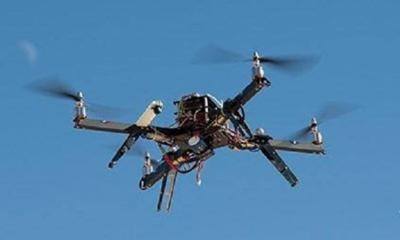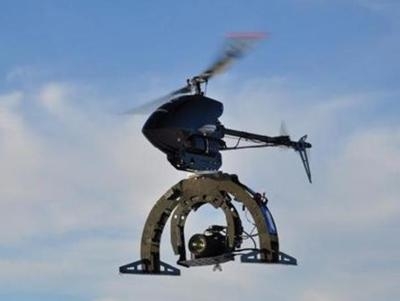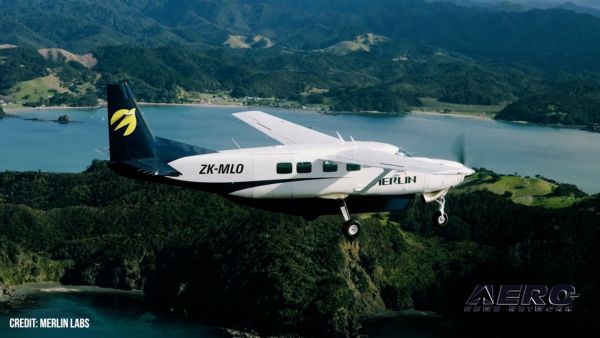Mon, Sep 29, 2014
Association Cautions Manufacturers That Traveling With The Aircraft May Require Special Considerations
As Unmanned Aerial Vehicles – or UAVs – become more commercially available and the list of industries utilizing the technology expands, companies should be aware of the stringent transportation regulations applicable to the lithium ion batteries that power virtually every UAV.

These transportation regulations address the packaging, testing and size limitations (in Watt-hours and kilograms) of lithium ion batteries and UAVs (packed with lithium ion batteries). The rules also specify the number and size (in Watt-hours) of lithium ion batteries that may be carried on aircraft by passengers.
Major companies including Amazon and Google as well as the agriculture, film, journalism, telecommunications and real estate industries are discovering ways to maximize the commercial viability of small unmanned aircraft. UAVS are also being deployed to assist law enforcement in searches for missing persons and by nonprofits in peacekeeping and peacebuilding efforts. Researchers are using the unmanned aircraft to study and save wildlife.
A report by the Association for Unmanned Vehicle Systems International found the industry could create more than 100,000 new jobs and over $80 billion in economic benefits within 10 years after integration of UAVs into the U.S airspace system.

The FAA is expected to announce proposed rules for small commercial drones later this year. However, lithium ion batteries, the engine of the UAVs, are already stringently regulated by the FAA as hazardous materials (also known as "dangerous goods"). The FAA and other transport authorities around the world issue regulations that shippers of UAVs must comply with and that passengers must adhere to when carrying lithium ion batteries onboard an aircraft. Failure to comply with these regulations can result in significant civil penalties levied against companies whose employees are found to be in violation of these regulations.
If a company's employee is traveling with a UAV and spare lithium ion batteries, the U.S. and international hazardous materials regulations strictly prohibit spare lithium ion batteries from being placed in checked baggage. In addition, lithium ion batteries carried on the aircraft by passengers generally may not exceed 100 Watt-hours. However, slightly larger lithium ion batteries exceeding 100 Wh, but not exceeding 160 Wh, may be carried onboard the aircraft with the approval of the airline. No more than two of these slightly larger lithium ion batteries may be carried on the aircraft.
(Images from file)
More News
Also: 787-Billion Pax, Ryanair Buying Chinese, Ballooning HoF, ERAU MX Competition An NTSB Preliminary report is shedding some light on the Rob Holland tragedy. And there now seems>[...]
Also: Tricky Golf Course Deadstick, Textron Special Olympics, Artemis II, FlightSimExpo! Stratolaunch conducted the second successful launch and recovery of its Talon-A2 autonomous>[...]
Also: Rotax Service Instruction, LAA Jabiru Alert, New AMA Boss, FlightSimExpo ANN’s Jim Campbell got an hour in the SLEEK Blackshape Prime last week along with a chance to w>[...]
“Secretary Duffy’s plan cements America as a global leader in aviation, investing in both technology and the air traffic control workforce to enhance U.S. aviation safe>[...]
Witnesses Described That The Glider Pitched Up Before Entering A Nose Low, Left Descending Turn Analysis: The 84-year-old pilot was being towed for takeoff in his glider when the a>[...]
 Airborne 05.05.25: NTSB Holland Prelim, Airlines v Tariffs, $$$ For ATC
Airborne 05.05.25: NTSB Holland Prelim, Airlines v Tariffs, $$$ For ATC Airborne 05.07.25: Talon A-2 Hypersonic, FIFI Under Repair, Spirit Furloughs
Airborne 05.07.25: Talon A-2 Hypersonic, FIFI Under Repair, Spirit Furloughs Airborne Affordable Flyers 05.08.25: Blackshape Test, Risen, Alto NG Sells Out
Airborne Affordable Flyers 05.08.25: Blackshape Test, Risen, Alto NG Sells Out Aero-News: Quote of the Day (05.11.25)
Aero-News: Quote of the Day (05.11.25) NTSB Final Report: Schleicher Alexander GMBH & CO ASH 26 E
NTSB Final Report: Schleicher Alexander GMBH & CO ASH 26 E




